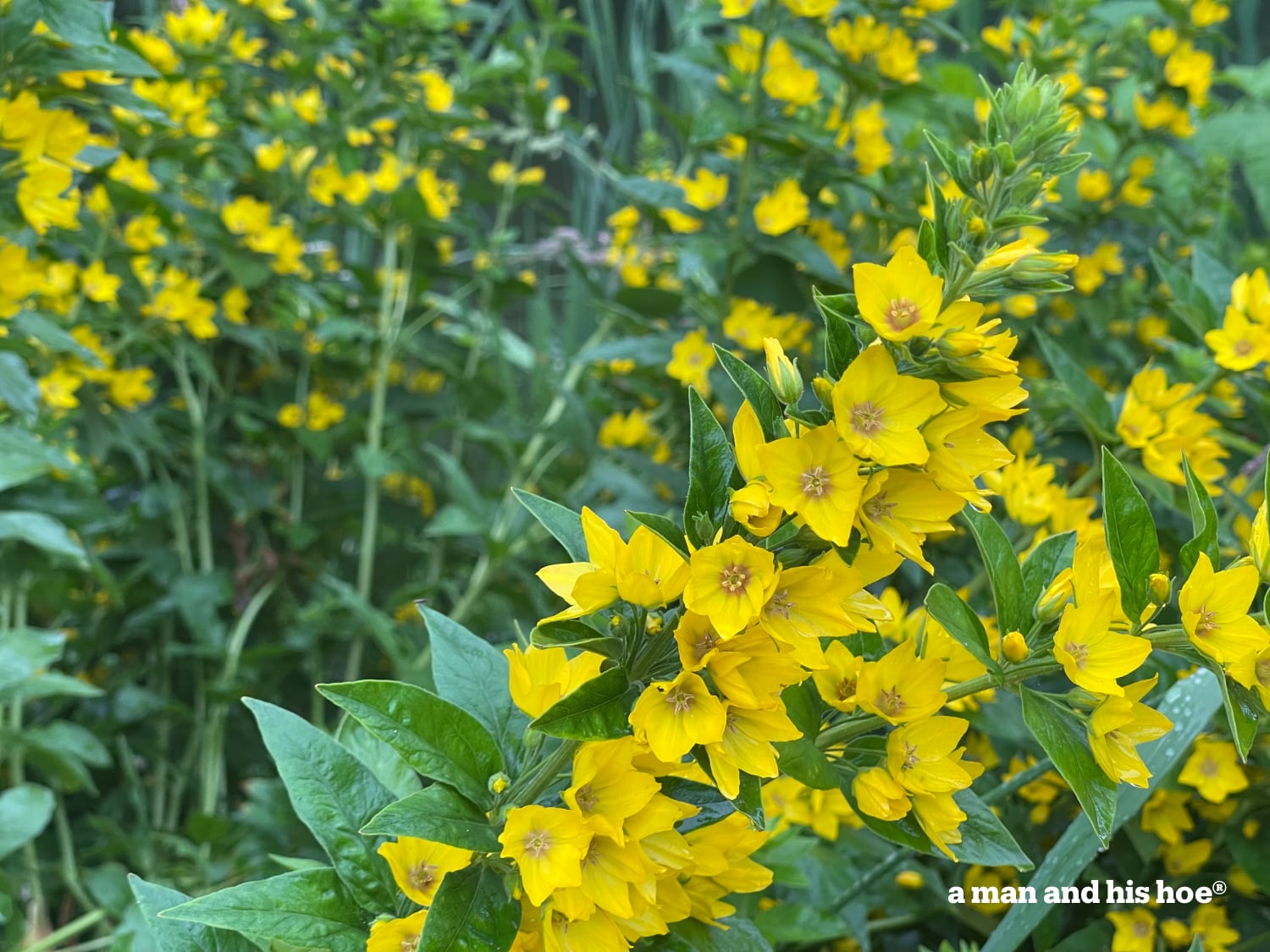Your cart is currently empty!
Month: July 2022
-
A Gentle July
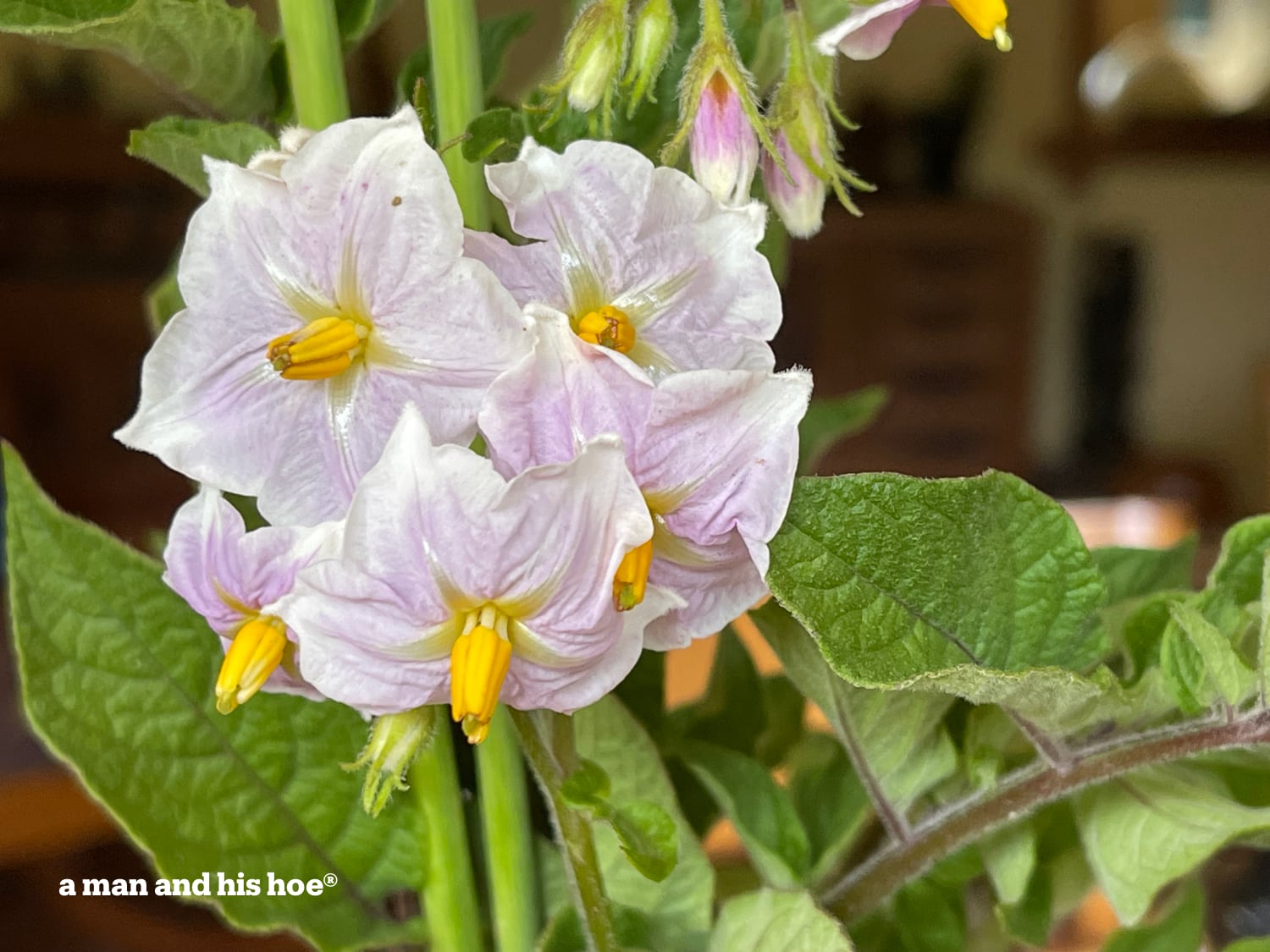
Potato flowers bloom in a gentle July. I’m not sure why potato flowers aren’t a stable in floral shops during mid July and early August. I like cutting them and putting them in vases.
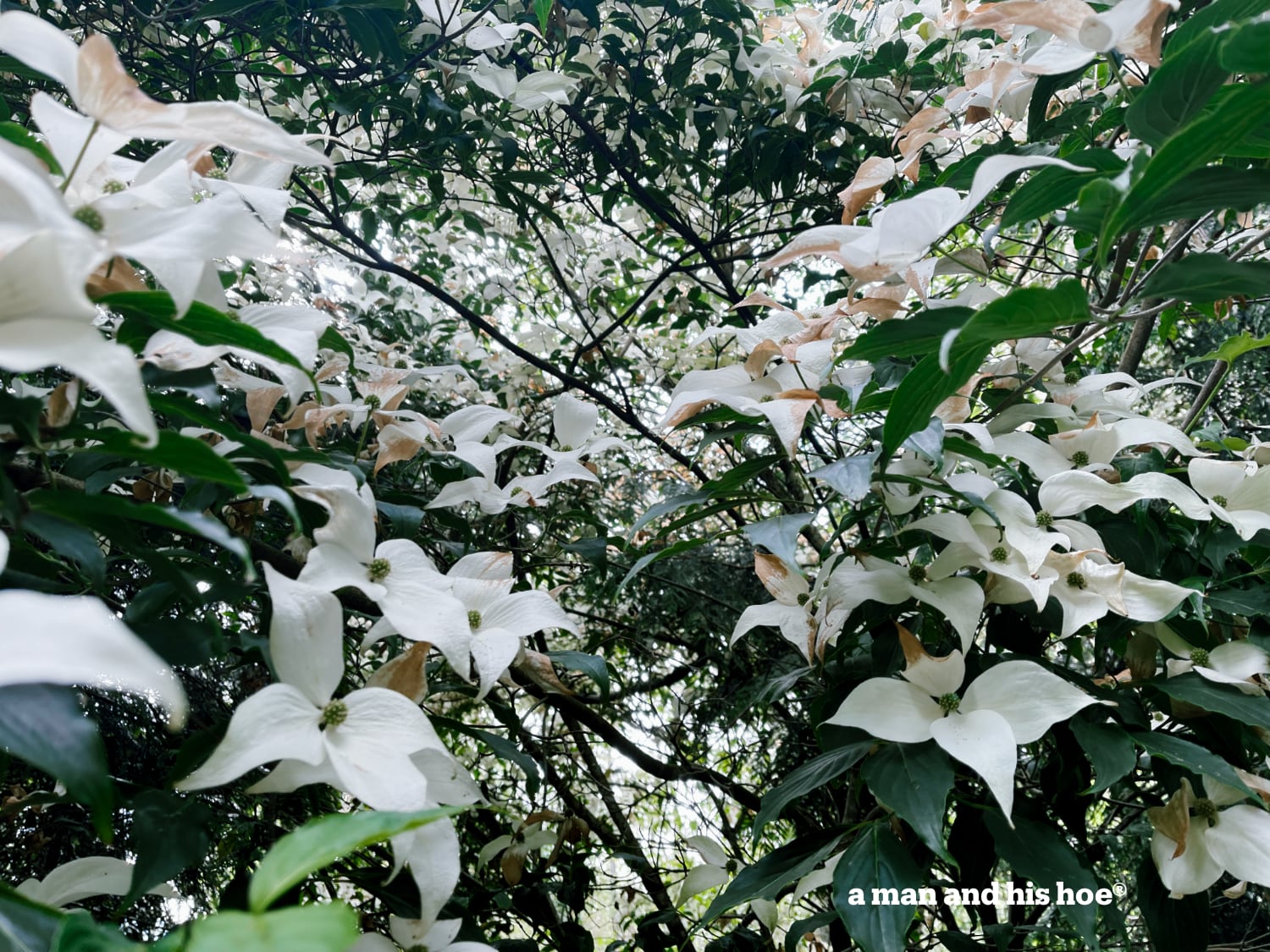
The dogwood at the edge of the woods is in full bloom. Hemmed in by cedars, it climbs between the evergreens. It’s flowers look like a flock of birds flying between the trees. Why “dogwood” and not “flying dove tree”? One idea is that “dogwood” comes from the Old English “dagwood” meaning that the slender branches were good for making “dags” (sharp objects). Though there is no documentation to back this up. Then again, there isn’t a huge library of Old English material. There are some 400 surviving manuscripts from this time. So the chances of one of those manuscripts bothering to mention “dagwood” is slim.
I took an Old English class in college. My textbook from that class is somewhere. None of us would understand a thing an Old English speaking person would say. You can hear someone recite the Lord’s Prayer in Old English here. Though I doubt someone from 200 years in the future will be able to understand a thing we say.

Fiddle ferns overgrow a stretch of path each spring. They are drying out now. So I pluck the fiddle ferns which tower over my head and lay them down on the path. As their fronds dry out, they make the softest of paths to walk on.

Can a sky be more like a gentle July? White clouds on a cobalt blue sky. What would it be like if we could hear the clouds float by and we could tell by the sound if it was a puffy cloud or a thin, scrabble one. Instead of lying in the grass and watching the clouds go by, we’d sit with our eyes closed listening to them, getting chills up and down our spines as we hear approaching ominous ones, waiting for the crack of thunder. Or the soft sounds of puffy clouds would lull us to sleep.
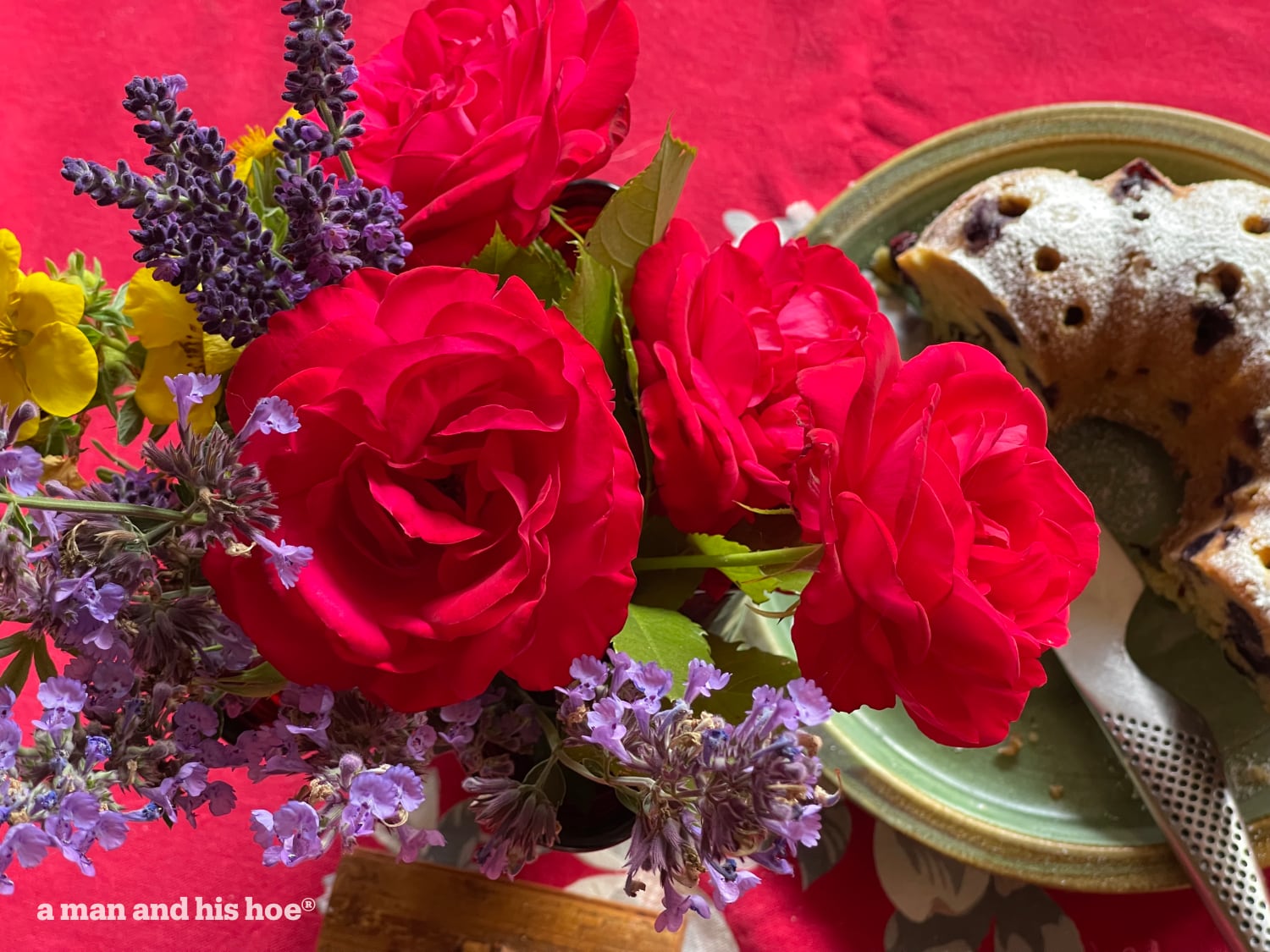
Happiness is a bounty of flowers at hand to decorate the table. The roses and lavender I planted last year bring me more happiness than I imagined. A good reason to plant more this year.
-
Snip, Snip, Snip
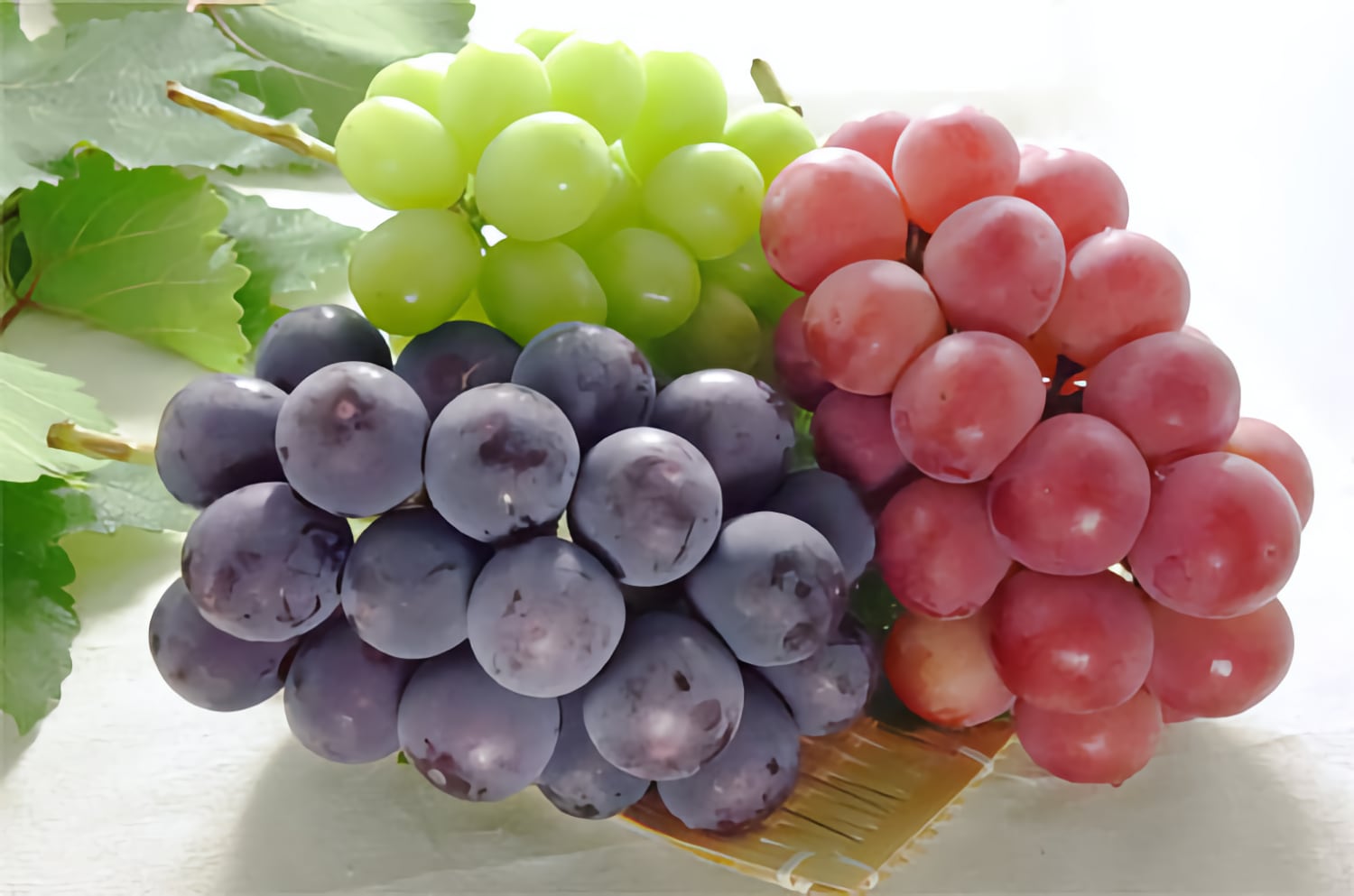
Grapes in Japan tend to be huge. The clusters have individual grapes two to three times the size of the grapes my grape vines produce. I was curious how they do this. Is it years of selecting varieties? Special fertilizers? Secret growing methods?
I recently saw a news feature explaining how this works. It”s all snip, snip, snip. When the grape clusters are just forming, the grape farmers reduce the number of clusters to a few per stem, and then remove most of the budding grapes from each cluster, leaving just 10% or so of the grapes to form.
With so few grapes left, the grapes grow fat and juicy.
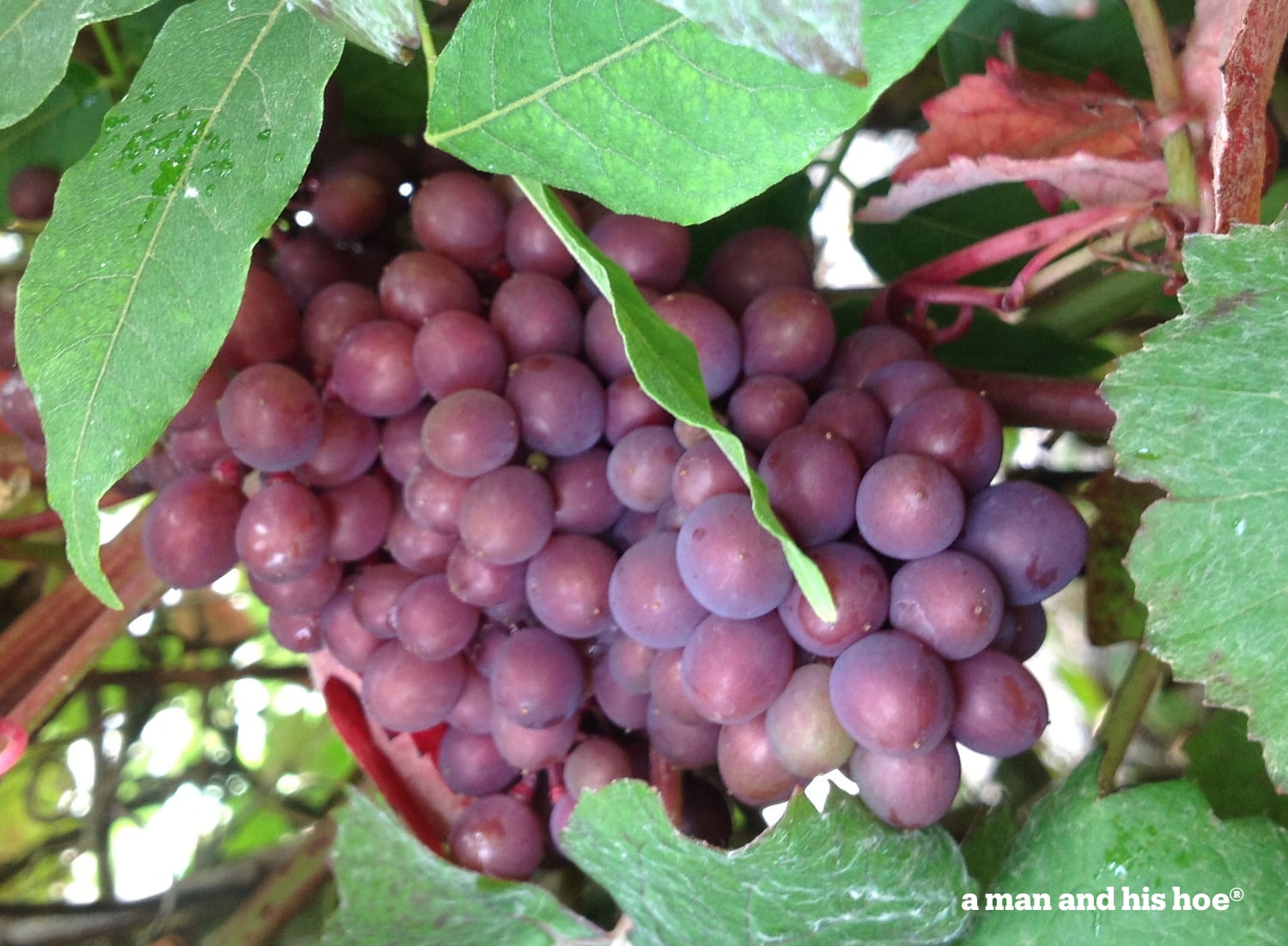
These are my grape clusters from prior years. There is nothing wrong with them, but I’ve got so many grape clusters I have room to experiment.
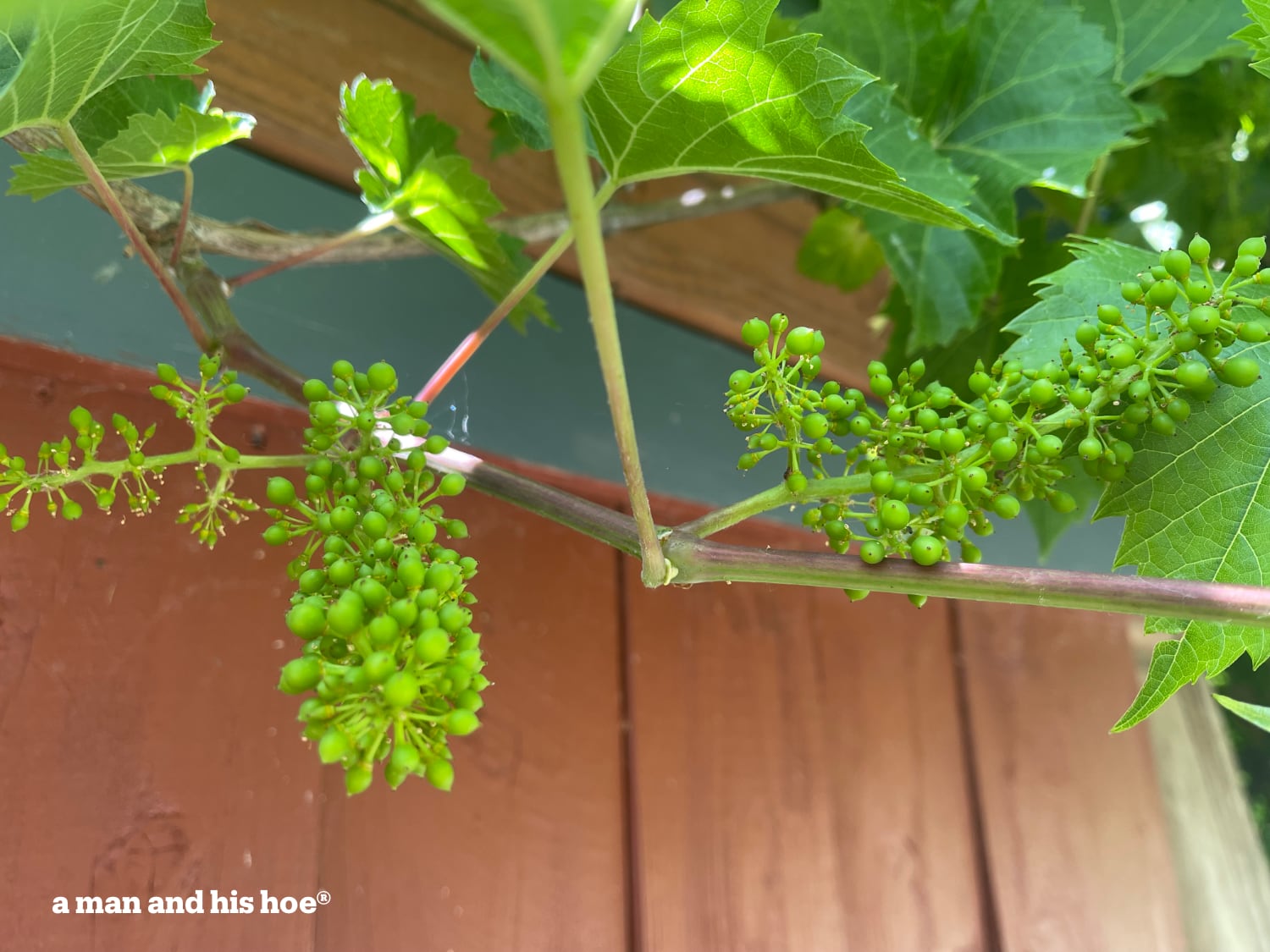
So I’ve taken these forming grape clusters and snipped them to this:
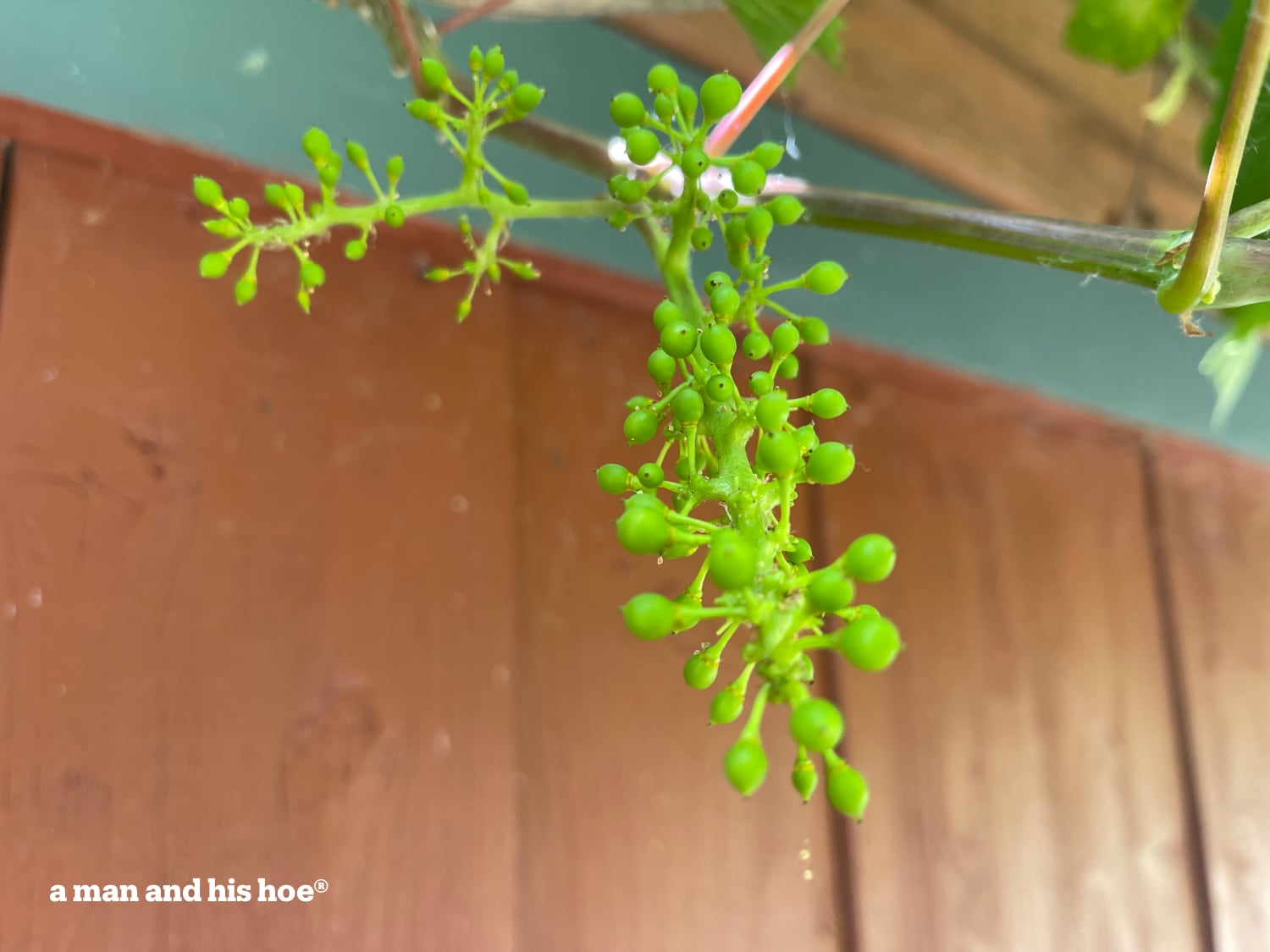
I’ll experiment with more clusters to see what is the optimal pruning to get the biggest grapes. One site I looked at said I need to remove the top third of the cluster or so, and thin out the remaining cluster.
The news article I saw showed AI smart glasses developed for pruning the clusters. When someone looks at a cluster through these AI smart glasses, software highlights the sections of the cluster to remove. So even inexperienced people can wear the smart glasses and see which grapes to remove. The AI smart glasses being developed by University of Yamanshi also count the number of grapes in a cluster.
There are hundreds of clusters so I can run all kinds of experiments this summer. I’ll skip the AI smart glasses for now.
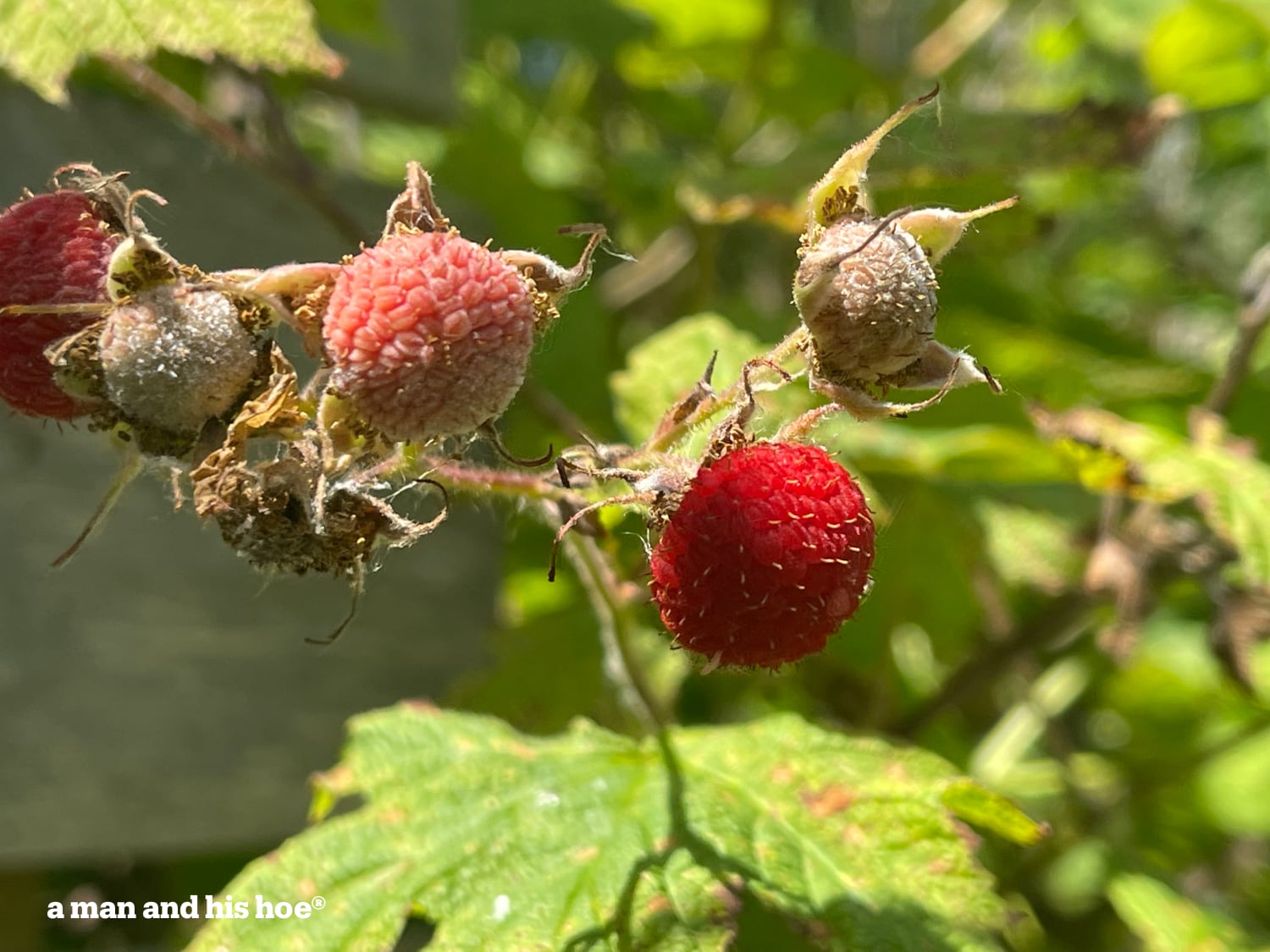
But a side benefit of grape cluster thinning is being out with the ripening thimble berries. It is high summer with these berries ripening.
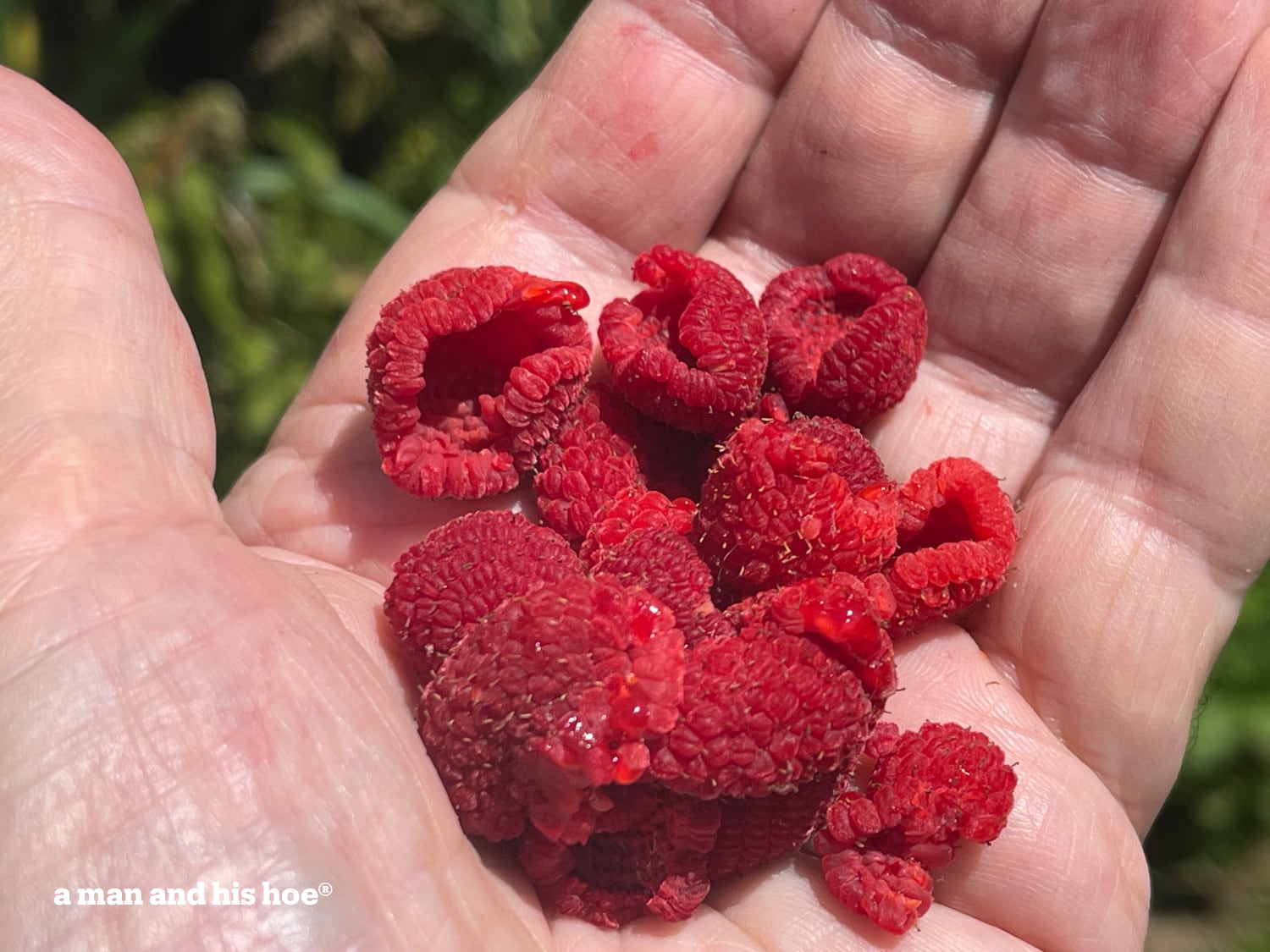
Nothing says summer like a handful of thimble berries.
-
Not This Year
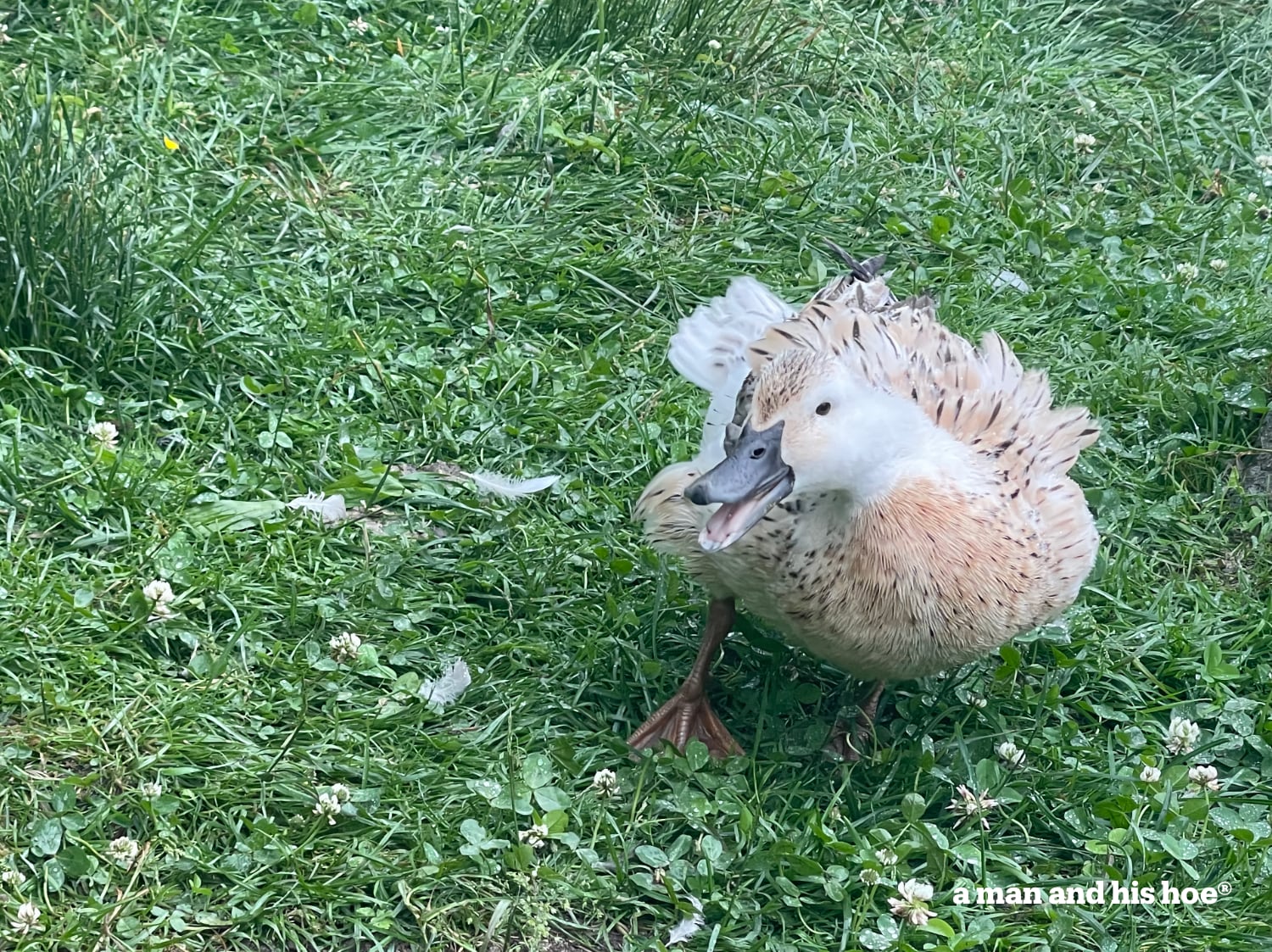
Snow gave up brooding a few days ago so she won’t be hatching ducklings, not this year. She still fluffs up like a brooding hen when I approach her. It would be nice to have a chat with her. “What went wrong, Snow?” Or how she feels about her eggs not hatching.
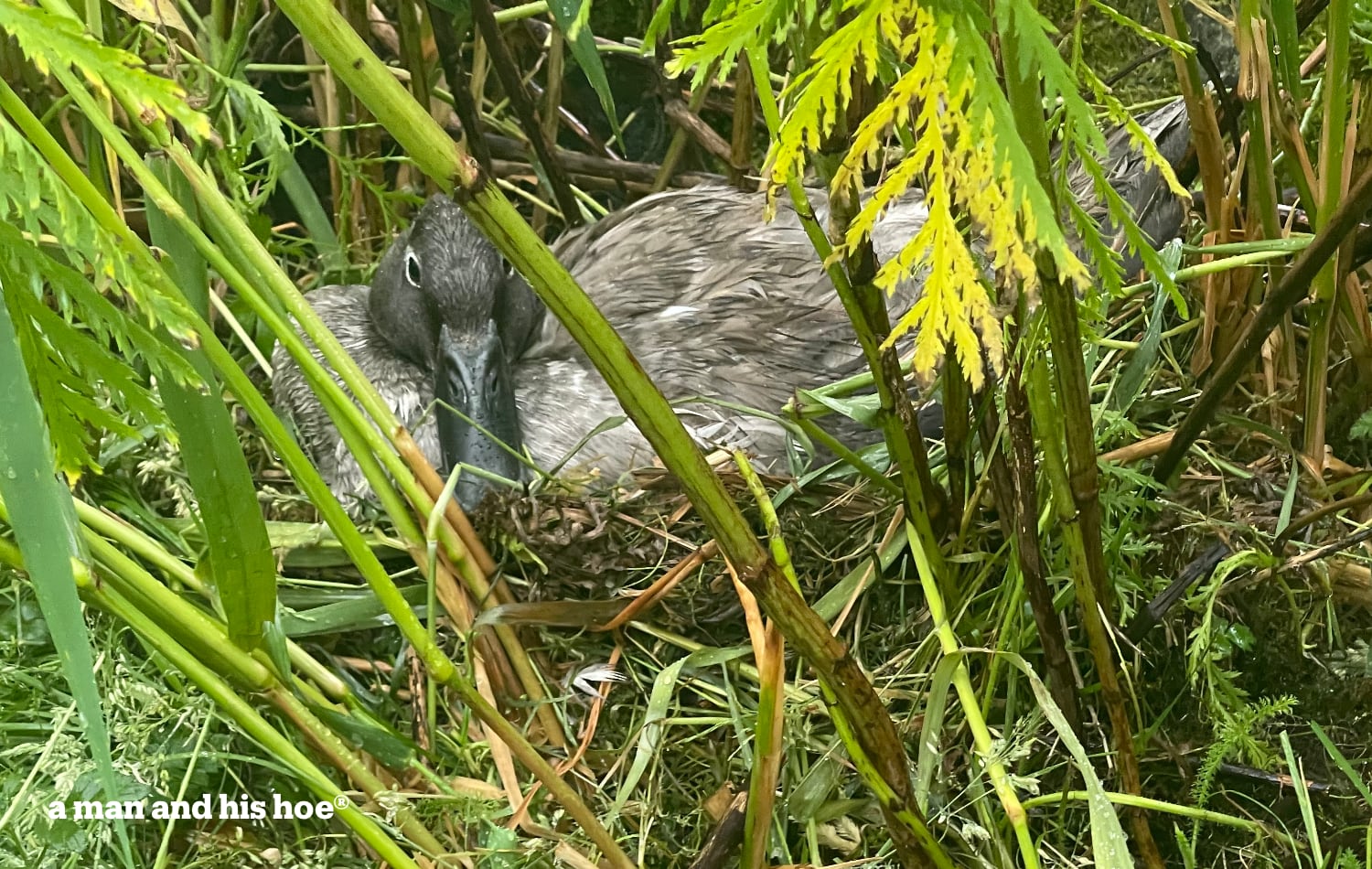
Gray is still on her nest. I’m hopeful she will succeed in hatching her eggs. Her nest was more defined when she started brooding and it is well hidden.
What does a duck think while she waits for her eggs to hatch? Does she spend most of the time sleeping? Or does she look down at the pond and wish she could spend the day swimming about?
Someday we will have figured out how brains work and our phones will be able to pick up the slightest electrical impulses any brain emits. All we will have to do is point our phone at a brain and understand what it is thinking. We won’t have to try and decipher a cat’s meow or a dog’s bark. Our phones will tell us exactly what our pets are thinking. Which means we’ll have to go about with special helmets that shield our brains from everyone eavesdropping on our thoughts. If we don’t when we walk into a store, the store will know instantly what we are wanting to buy, correlate it with our mood, and up the price of everything we want to the maximum amount we are willing to pay for it.
But it’s not something we need to worry about yet, at least not this year.

The future sounds bleak and dystopian. It can also be one of endless possibilities. Which way will we go? What is dystopian for some will be paradise for others, and vice versa.
The Loosestrife is in full bloom. From a small sprig, it has grown into a huge sprays of lovely yellow flowers. A Lysimachia there are many varieties of this genus. Though varieties of Lythrum are also called Loosestrife.
The name Lysimachia comes from the ancient king of Sicily, Lysimachus. He used a Loosestrife to calm a mad ox by feeding the plant to the ox. He must have been quite the character because historians report that Alexander the Great tossed him to a lion to punish him. But Lysimachus earned Alexander’s respect by killing the lion with his bare hands.
